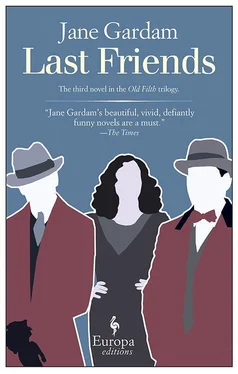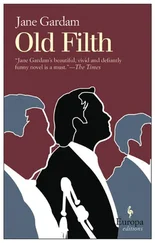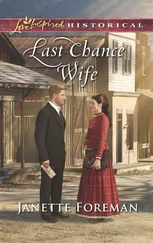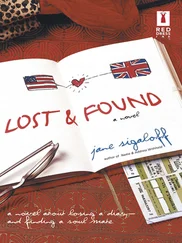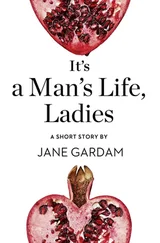‘Yes. Well. I’m still coming. Somehow. The ship’s awash with bairns and little kids and them Fondles is after me. I don’t know why, I don’t trust them. They think I’m theirs. I’m not theirs. I’m me Mam’s. And me Dad’s. I’se jumped ship. The ship’s about to sail. I’m somewhere in Liverpool. They’ll never find me.’
The operator said, ‘Your three minutes is up. Do you want to pay for more time?’
He pushed some shillings and then pennies into the slot and after they had clattered down there was silence again.
But then, at last, Mr. Smith’s voice saying, ‘D’you think you can find The Adelphi Hotel? Terry? Very big. Dark. Ask anyone.’
‘Yes. I think it’s right near. I think I’m beside it. I must have gone in a circle.’
‘Go in there. I’ll phone them and say you’re coming. Right. Now, sit in the main Bar there if they’ll let you. Out of sight if you can. Say someone’s coming for you. Say you’ve had bad news from home that means you are unable to leave the country just now. Give anyone this number. Terry — if this is panic it may not be too late—.’
There was a boom like the Last Judgement across the City of Liverpool and The City of Benares , its funnels calling out like organ pipes, began its graceful journey towards the Atlantic Ocean.
‘It’s not panic, Mr. Smith. And it is too late. I know I’m doing right, Mr. Smith. I’m sorry.’
‘You’ve been listening to the slaughterer, Mr. Churchill, forbidding us to run away.’
‘No. Look. Will you tell Mam and Da? I’m coming home.’
‘You’ve had your three shillings’ worth and more,’ said the operator. ‘I couldn’t help listening. I’m not sure of Churchill neither. Always was a war-monger. Death and glory. I’d go home meself if I was you lad.’
‘Thanks. I know what I’m doing,’ said Terry. ‘Thanks, Mr. Smith. I’m fine.’ But his hand shook so much that it took him three attempts to get the heavy black hand-piece back on its hook. Behind it he saw his face in the small spotted mirror. It looked set and certain. Totally certain. I look like me Da, he thought. So that’s O.K.
Still there?’
The barman at the Adelphi’s shadowy and vast main bar was, towards evening, still polishing glasses. Terry was almost out of sight as he had been for hours around the side of the bar on a black-painted step near the floor, his case beside him, waiting for the telephone to ring.
‘You’s sure now that he’s coming? It’s after tea now.’
‘If Mr. Smith said so—.’
‘Well, he said there’d be someone coming to get you, not him. Someone nearer, but not that near. Fromt Lake District. Not nobody, not God, could get over from Teesside today. News travels. It’s not int papers or ont wireless yet. Bombed and flattened the steel-works. First bad ’un they’ve had there. We’s all but used to it ’ere. You’s well away — there’ll be more. Aren’t you the daft ’un not on that luxury liner with the toffs?’
Terry sat on. ‘Can I have a drink? A bar drink.’
‘I’ll give you one small beer.’
‘No. I want Vodka. I’m partly Russian.’
‘I’ve been noticing the hair.’
‘I’ve been collecting round my school for the Red Cross Penny-a-Week fund for Russia.’
‘Why?’
‘I’m a Communist.’
‘Oh God,’ said the barman. ‘Switch off. You’ve got ground to cover yet. Never mind your father. Hullo? Oh, good evening? Yes. Along here. Someone is coming.’
It was a false hope. Terry sat on. He said, ‘We never met anyone from the Lake District. Where’s the Lake District? I thought it was Canada — like Erie and Michigan and that.’
‘By God, you’re ignorant. Where you been all your life, Lenin? Herringfleet? Cod’s-head folk.’
‘That’s right. Can you get me a sandwich?’
‘There’s none here to get it for you and nowt to put in it if there was! Mebbe in the police-station if none turns up here for you.’
‘Bit longer,’ said Terry, ‘Mr. Smith won’t forget. What’s that?’
Far away in the main foyer of the hotel there was, drawing nearer, a clear, rhythmic, distinctive mechanical sort of voice. ‘—let that be understood. From the beginning. Thank you, yes.’ A small man was walking towards them from the far end of the long shadowed passage, talking as if addressing an audience. ‘And this is my passenger, I dare say?’
‘If you’ve come from a Mr. Smith,’ said the barman.
‘I have. Good afternoon. Stand up, boy. Shake hands with me. A straight back and a direct look. Good. Good. My name is Sir. Just Sir. I am the headmaster of a school in the Lake District where Mr. Smith was once my deputy. All my deputies are called Mr. Smith but this Mr. Smith is authentically Smith. A fine man. My school is called a Preparatory School, or Prep School. My Outfit. I’m afraid you are rather too old for my Outfit but we shall see what can be done.’
(‘He’s a Communist,’ said the barman. ‘We must discuss the matter,’ said Sir.)
‘It is a pity that you are so old for I believe there is much I can do for you. Hair-wise (look up hair in Latin. Roman customs and barbering) and now what exactly is your name? I gather that it is uncertain.’
‘Yes. It has always been a sort of uncertainty.’
‘It must be settled at once. It is most important. If I can do nothing else I can do that. Venitski? Vanetski? Varenski? Are you all illiterate in Herringfleet?’
‘Dad never really discussed it. He came from Odessa.’
(‘It’s Ivan-Skavinski-Skavar,’ said the barman and began to sing the tune.)
‘Enough!’ shouted Sir. ‘This is a very serious matter. Your name henceforth shall be Veneering. Yes. Delightful. Polished. In Dickens, Veneering (look up Our Mutual Friend ) is an unpleasant character and you will have to redeem him. Veneering has a positive and memorable ring. Rather jolly. You do not look un -Dickensian, but you look far from jolly.’
‘ So —let us leave at once. Tonight you will be staying in the Lake District mountains in my Outfit. Mr. Smith is coming to remove you tomorrow.’
‘Does he know that you will have given me a new name?’
‘He won’t be surprised. A most sensible man. Has a son of his own. Maybe I’ll get him. Such a pity Mr. Smith had to leave me to get married. I have no married teachers in my Outfit. Marriage brings distractions. In my Outfit we are too busy for distractions.’
Handing the barman a five pound note the small loquacious man turned and left the Adelphi Hotel and Terry followed dragging all his worldly possessions in the suitcase.
‘The Adelphi Hotel is haunted,’ said Sir. ‘It is the hotel where doomed passengers of ship-wrecks have always gathered before embarkation. Filled with shadows. Such rubbish. In the back, now. The dickey-seat. I don’t ever drive with a boy along-side me for there is always talk in a Prep School. Mine is a clean school. Was yours?’
‘I don’t know what you mean, Sir. Mine was run by a man called Fondle.’
‘That,’ said Sir, ‘is a bad start.’
They roared away north-north-east towards the Cumbrian fells, Sir occasionally blasting off into the empty night, upon the car’s bulbous horn, at resting rabbits. After a time the light around them began to fade into a gentle sunset. Sir stopped the car.
‘Bladder relief.’
‘Now,’ he said, ‘another day is done. By what I hear it has been a day you are unlikely to forget. Time will tell us if you were directed by some spiritual force of nature, by instinct or by selfish whim. I heartily advise you to beware, if it is because of “whim” (look the word up. Old English sudden fancy or caprice OED), never to do such a thing again. Is that understood? I dare say?’
Читать дальше
